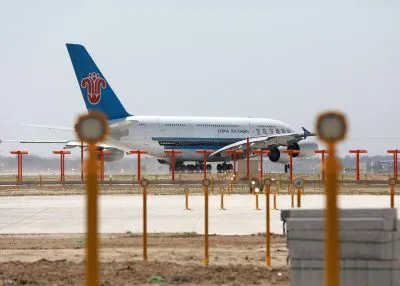Uhuru Kenyatta assumed the Kenyan presidency in 2013 promising to tackle insecurity, create jobs, improve food security, fight the corruption that has blighted the country since independence and reinvigorate the private sector.
Nine years on, as Kenyatta prepares to hand power to his deputy-turned-rival William Ruto, who was declared president-elect this week after defeating Kenyatta-backed veteran Raila Odinga, analysts say the economic legacy of the son of Kenya’s first president, the liberation hero Jomo Kenyatta, is a mixed bag.
While large and impressive infrastructure projects appear to symbolise a positive development path for East Africa’s biggest and most dynamic economy, ballooning public debt, rising prices and high unemployment risk dragging it down.
“It is a legacy of mis-prioritisation and misdiagnosis of the economic problems facing the Kenyan economy,” says Reginald Kadzutu, chief executive of Amana Capital in Nairobi, in a blunt assessment of Kenyatta’s economic record.
Some argue public debt is Kenyatta’s most enduring economic legacy. When he took office, public debt stood at about $17.95bn. Nine years on, it has grown to around $72bn, just over 50% of it from foreign lenders. Meanwhile, the excessive reliance on loans – domestic and foreign – has caused public debt as a ratio of GDP to almost double since 2013 to around 69%, straining the exchequer. This year, servicing Kenya’s debts to China alone will cost over $620m.
As a result, Kenya is classified as at high risk of distress by the International Monetary Fund. Further, a Bloomberg Economics’ assessment of 50 developing economies recently ranked Kenya as the sixth most vulnerable to a debt crisis.
Infrastructure spending spree
Central to the issue has been Kenyatta’s infrastructure spending spree, crowned by the Nairobi Expressway, which cuts a rush-hour trip to the airport from over two hours to 25 minutes – for those that can afford it. The first of its kind in Africa, Kenyatta claims the expressway will stimulate economic growth for the long haul.
Not all are convinced. “It is a legacy of treating symptoms and not the problem,” said Kadzutu. “The expressway treats a traffic problem created by everyone moving to Nairobi because of the death of the rural economy and a lack of upward mobility in the rural economy.”
Other major projects include a Chinese-built Standard Gauge Railway linking the capital with Mombasa, 2,000 new dams and thousands of miles of tarmacked roads. Electricity access has seen impressive gains; when Kenyatta came to office only 30% of Kenyans had access to electricity, today three-quarters of the population is connected.
In a speech to mark 59 years of independence from Britain, Kenyatta said: “Infrastructure has a way of turning swamps into cities, dead spaces into high-value property, and village shopping centres into huge city malls. Without infrastructure, there is no way of finding new possibilities.”
Economist Fredrick Ogola, who runs the MBA programme at Nairobi’s Strathmore University, says Kenyatta had laid the foundations for long-term growth.
“The ecosystem of economic infrastructure has been built, now somebody has to do socio-economic transformation,” he adds. “How does this benefit people, how do the roads and ports help?” If Kenyatta’s successor does not build on his success, Ogola says, Kenya will be left with a high inventory of national assets with a low return on those assets.
Ogola adds that Kenya’s debt to GDP ratio is well below other countries, from Japan (257%) and Sudan (210%) to Greece (207%).
Still, ballooning public debt has prevented action on Kenya’s social safety net, for instance in health, where spending has hardly grown in recent years and inadequate medical equipment and staff shortages have dented outcomes, even though Kenyatta’s administration built several hospitals.
Analysts say the macro picture is worrying. Kenya’s current account deficit is likely to widen to 6.3% of GDP this year, according to Capital Economics. Meanwhile, Kenya’s trade deficit has risen to a record $6bn in the past five months.
“One key point in all this is that Kenya’s fragile balance sheet – including a large current account deficit – means that the economy is particularly vulnerable to a period of capital flight,” says Virag Forizs, Africa Economist at Capital Economics.
As a result Ruto’s honeymoon could be short-lived. The 55-year-old president-elect must immediately tackle Kenya’s indebtedness if the election is upheld and he takes office next month. He said he plans to do so through fiscal consolidation.
Legacy ‘not wholly convincing’
In his second term, Kenyatta devised an extremely optimistic 2030 economic vision dubbed the Big 4 Agenda which rests on four pillars – food security, affordable housing, universal healthcare and manufacturing and job creation. In each case, his legacy is not wholly convincing.
Although exports of steel, cement and automotive parts have increased, manufacturing output has been hindered by poor infrastructure in industrial areas, sluggish currency performance and inadequate electricity generation capacity, which lags far behind emerging economies such as South Africa. External events such as the pandemic and the war in Ukraine have created more challenges. Ogola says pharmaceutical manufacturing is one of many sub-sectors where insufficient progress has been made. Manufacturing accounted for 13% of Kenyan GDP in 2010, but dropped to 7.2% last year.
On the agriculture front, the primary economic driver in Kenya, a lack of mechanisation in food production and insufficient food reserves – as well as an appalling drought and the coronavirus pandemic – have four million people relying on food aid. The Covid-19 pandemic blitzed the agriculture sector by shutting down international supply chains. Experts say Kenyan farmers must push into value-added exports, for instance by processing fruits into juices.
“Besides the Covid-19 related shock, the country has also gone through a locust invasion, prolonged drought and, most recently, the impact of the Ukraine crisis,” says a spokesman for the Alliance for a Green Revolution in Africa, which looks out for the continent’s farmers. “The net effect of all these shocks is that the sector contracted by 0.2% in 2021, compared to a growth of 5.2% in 2020.”
Kenyatta also declared corruption a national security threat but Kenya still ranks 128th out of 180 countries in Transparency’s corruption perception index.
Ruto steps forward
Ruto’s victory, if it holds, is a statement on Kenyatta’s record. The deputy-president launched a “hustler nation” campaign vowing to rip down Kenya’s “dynasties” – represented by his opponent, the five-time presidential candidate and former prime minister Odinga – and lift up the country’s “hustlers”.
His victory in the bitter and close election, with 50.5% amid chaotic scenes, is undeniably a response by parts of the electorate to Kenyatta’s tenure. Youth unemployment is hovering around 40%, while the war in Ukraine has caused prices of basic commodities to skyrocket. Kenya is vulnerable to fluctuations in global commodity markets as a net importer of fuel, wheat and fertiliser. Inflation is around 9%.
A recent study by the International Food Policy Research Institute on the impact of the Ukraine war on the Kenyan economy suggested the resulting crisis could shave 0.8% off Kenya’s GDP in 2022. The increase in commodity prices will also reduce consumption among low earners and could push over a million Kenyans below the poverty line.
“I really want us to know that the expectations of the people of Kenya are huge. We don’t have the luxury of wasting time,” Ruto said this week in a speech.
Voters interviewed by African Business overwhelmingly raised the economy as the most important issue to them.
“William Ruto will provide youth with jobs,” said Sammy Chege, a self-proclaimed “hustler” in arid Turkana county.
There are reasons to be positive. For much of Kenyatta’s tenure Kenya’s economy achieved decent growth, averaging 4.7% GDP growth annually between 2015 and 2019, leading to significant reductions in poverty, which fell to 34.4% at the $1.90 a day line in 2019. Kenya’s economy has doubled in size since Kenyatta took office. The outgoing president had no control over the coronavirus pandemic, which hit the Kenyan economy hard, particularly by cutting off tourism, a vital industry. The World Bank expects Kenya’s economy to grow by a respectable 5.5% this year.
In addition, he has overseen the growth of a thriving Kenyan tech sector and the country is today home to major companies including Microsoft, Visa, Facebook, Google and General Electric, which have all made Nairobi – East Africa’s wealthiest city – their regional hubs. The stability has seen the United Nations select Kenya as its African hub.
Kenyatta also deserves credit for his regional diplomacy, which has seen him mediate in disputes in South Sudan, Ethiopia and most recently between Rwanda and the Democratic Republic of Congo. Under his watch, Kenya has grown as an economic, political and diplomatic powerhouse. And a calm and stable East Africa is important to Kenya’s economic success.
Some analysts previously argued that Kenyatta’s decision to ease tensions and ally himself with opposition leader Odinga presented a rare opportunity for investment-boosting political stability.
However, a week after Ruto was declared president-elect, having shocked the political establishment, Kenyatta is yet to speak publicly or acknowledge the result, while Odinga is challenging it in court.
While the positive aspects of Kenyatta’s economic legacy are not in imminent danger under a Ruto presidency, investors who prize political stability are having to take a wait-and-see approach in the tense post-election period. And Kenyatta’s best legacy-building opportunity – of guiding Kenya through a series of economic shocks and leaving the country with more political stability than when he found it – could yet be squandered.
Want to continue reading? Subscribe today.
You've read all your free articles for this month! Subscribe now to enjoy full access to our content.
Digital Monthly
£8.00 / month
Receive full unlimited access to our articles, opinions, podcasts and more.
Digital Yearly
£70.00 / year
Our best value offer - save £26 and gain access to all of our digital content for an entire year!

 Sign in with Google
Sign in with Google 






